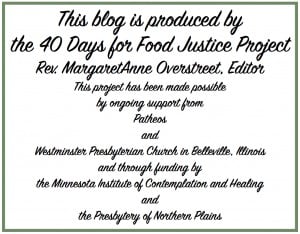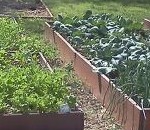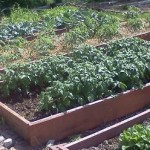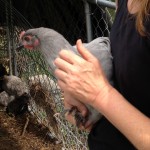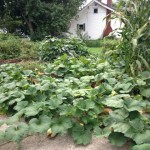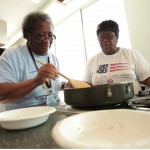What is Food Justice?
It’s a question with which we frequently wrestle, because we are so frequently asked. What we’ve found is that the answer seems to have different nuances in different contexts. The definition takes on different shades as it becomes part of various conversations.
So here are some definitions and thoughts and questions for you to consider, as we embark upon this journey of 40 Days for Food Justice. After you read some or all of them, add your thoughts in the comments section.
———–
In a blog post at Grist, Clair Stanford struggled with her own definition for food justice. She said that she believed she understood what it meant …
“But then, inevitably, someone did ask me to define it. And that’s when I found out that food justice was one of those terms that’s easy to use in a sentence, but not so easy to explain.”(Click on the Grist link to read more of her blog post.)
———–
Slow Food USA’s Josh Viertel has experience as a farmer that helps shape his understanding of the work of food justice:
“To even stay at the poverty line as a farmer, selling directly to consumers, you have to charge prices which means that your food—which is real food—is completely unavailable to low-income people.”(Click on this link to read more of what he had to say.)
———–
Food Secure Canada suggests that we consider some questions about our food system to help understand food justice (and injustice):
- who produces the food?
- who has access to land, and the means of production?
- who has access to healthy, nutritious, culturally appropriate food and who doesn’t?
- who suffers environmental injustice?
- who makes food decisions?
- how has colonialism affected our food system and traditional livelihoods?
- what type of food is produced?
- what knowledge is valued and which isn’t?
———–
Here’s a definition from the Northeast Organic Farming Association of New York:
“A truly sustainable food system is generally defined as one that is economically viable, environmentally sound, and socially just. This has implications not only for how the food is produced but, ultimately, who has access to food that is free from dangerous pesticides, hormones, and additives which contributes to the thriving of local economies and ecologies.”(Click here to read more.)
———–
And one from the Community Food and Justice Coalition:
“The Community Food and Justice Coalition promotes the basic human right of access to healthy food. We take a holistic and systemic approach to creating a food system that is equitable, environmentally and economically sustainable, and community-driven.”(Click here to read more.)
———–
What do you think of Ayinde Howell’s statement:
“Someone once asked me what does the term food justice mean to me. Without thinking I said, “It means having a choice.” Being able to choose to live a healthy life is often taken away from certain members of society.”(Click here to read more.)
———–
Do these offerings help you to understand the term “food justice?” Or perhaps they do just the opposite? After reflecting on these statements, add your thoughts in the comments section and tell us: What is food justice?
———————————-
Lenten Calendar
for FEBRUARY 19
PAY ATTENTION! Make a list of everything you eat and drink today. Donate a dime for each thing on your list.
————————————
Sign up to receive the daily meditations by email, or like us on Facebook.
We need your stories!
If you would like to contribute – or would like to recommend a contributor – please send us an email and let us know.
About:
In addition to being the founder and editor-in-chief of the “40 Days for Food Justice Project”, the Rev. MargaretAnne Overstreet is a mom, a Presbyterian pastor, and a certified Health Coach. She does ministry with and among the good people of Westminster Presbyterian Church in Belleville, Illinois, where she gets her hands dirty in the community garden and, every Sunday, preaches with bare feet. She treasures family time, relishes every opportunity to teach and write about food justice, and loves to play outside with her dogs. Find out more about her at www.AnInBetweenPlace.com

